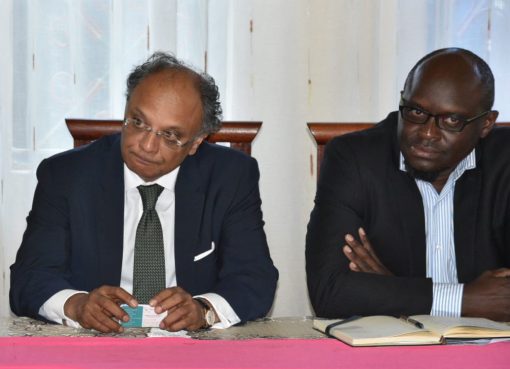Nakuru County Commissioner Erastus Mbui Mwenda has urged Kenyan youth to embrace technical skills as a way of making them self-reliant in the job market.
Mbui expressed concern that the country’s educational institutions are churning out more engineers and architects than a corresponding number of skilled artisans such as plumbers, masons, electricians and painters graduating from Technical Vocational Education Training (TVETS) institutions and polytechnics.
Speaking in Molo Sub-County when the County Development Implementation Coordination Committee (CDICC) inspected various state funded projects, the administrator observed that Technical Vocational Education Training institutions had transformed the developed countries into the world’s most industrialized nations.
“Kenya is on the right path by rolling out the new Competency Based Curriculum. There have been lots of changes within society to the effect that the present education curriculum can no longer be competitive in the 21st century.
Real estate developers and road contractors are already decrying a shortage of plumbers, masons, painters and electricians and yet at the moment these are the jobs that are well paying. It’s very serious since we already have a crisis and if we go on like this we will start bringing in expatriate masons,” observed the administrator.
He however said that there was a glimmer of hope as the government was committed to streamlining and funding the TVET training system in the country.
The County Commissioner observed that the state had set aside Sh6 billion budget capitation for over 200,000 TVET students while over 100,000 students will receive student loans.
Mbui pledged the government’s continued funding for institutions with low enrolment, but encouraged them to raise student numbers.
The County Commissioner said Africa’s leap to new industrialized status was being hampered by overemphasis on university education as opposed to acquisition of technical skills.
“The youth will change their mindset on degrees and embrace blue as opposed to white collar jobs through training of artisans when they realize labour is in short supply in these fields.
There is a serious labour imbalance in the job market which has necessitated the education sector in Kenya to be reformed to competence acquisition, this means skills for gainful employment,” he said.
The County Commissioner’s concern comes at a time when most tertiary colleges have been converted to universities where more graduates than diploma holders in crucial fields are being trained.
The government’s commitment to revamp vocational training is in line with the modern global trend where conventional schooling is gradually giving way to Technical and Vocational Education and Training (TVET) systems in a bid to fight the high rates of un-employment.
Nakuru has 24 youth polytechnics spread across the county that offer various courses. The total number of youth enrolled in the polytechnics across the county is approximately 2,000.
The 24 polytechnics in Nakuru have approximately 114 youth instructors.
According to the Technical Vocational Education and Training Authority, there are two accredited public TVET institutions in the county.
These are Dairy Training Institute in Naivasha and the Rift Valley Institute of Science and Technology in Njoro.
There are 18 accredited private TVET institutions.
According to Governor Lee Kinyanjui, the number of youth who join the polytechnics is projected to increase by 2022 due to the ongoing expansion and revamping of the facilities through conditional grants and support by the county government.
The government is also constructing more public TVETS in Naivasha, Molo and Bahati.
By Anne Mwale



